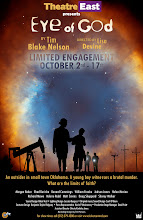CHICAGO
The murder of an anti-abortion protester outside Detroit Friday is forcing both sides of the abortion issue to address their traditional roles in the long-standing debate.
James Pouillon, a local man known in the community for his 20-year street protests aimed at ending abortion, was shot and killed outside a high school in suburban Owosso early Friday morning while staging his usual protest involving large photos of mutilated fetuses.
Within hours police named a suspect: Harlan James Drake. Mr. Drake killed two people that day, but the death of Mr. Pouillon is drawing attention because it is the first abortion-related murder since the May shooting death of Dr. George Tiller, a Wichita, Kan. physician who performed abortions, in the foyer of a Catholic church. A staunch anti-abortion advocate was charged.
Since news of the shootings broke Friday, national organizations representing both the anti-abortion and abortion rights movements released statements to frame the murder against data — either aborted fetuses or assassinated medical personnel — they say is essential in understanding how their side deals with violence or the threat of violence every day.
Shaun Kenney, executive director of the American Life League in Washington, one of the nation’s largest pro-life organizations, called Pouillon a “true pro-life hero” and said his murder on Sept. 11 was “a terrible irony” for bringing “to mind the 50 million innocent lives lost to abortion.”
On Saturday, Nancy Keenan, president of NARAL Pro-Choice America, condemned the murder and said the pro-choice side knows “all too well the chilling effect that shootings and other forms of violent intimidation have on people who have strongly held beliefs about this most personal issue.” The organization reports that eight abortion clinic workers in the US have been murdered since 1993.
Because the majority of violence surrounding the abortion issue usually involves threats or acts against clinics, resulting in federal and state protection laws, the murder of an anti-abortion advocate is reversing the traditional roles of both sides and, in that process, perhaps even forcing both to look at it with a new perspective.
Already, there are small signs that common ground is being found regarding the use of violence, no matter where it’s directed.
Keenan called Pouillon’s murder “senseless violence” and offered condolences to the families involved. Kenney said it wanted to “renew” its “call for peace and prayer as the only remedies for the culture of violence.”
Doug Levesque, the pastor of Immanuel Baptist Church outside Owosso, says he is already sensing “a solidarity of spirit” among people in the city, population 15,000, who share different points of view on abortion.
“I think people are [saying] ‘this is just craziness’. There are so many other things we can do. We can argue, we can rally. It’s not worth shooting each other over,” he says.
Mr. Levesque says Pouillon attended his church “numerous times” over the past few years and was known as a “caustic” abortion protester who “would have been thrilled” to learn that his murder was considered the antithesis of the Tiller case.
After the Tiller case, Levesque says he wrote op-ed pieces to the local newspaper condemning the use of violence in the abortion debate, even though he personally agreed that Tiller’s efforts resulted in “cold-blooded murder.” He said Pouillon felt the same.
“Jim would say Dr. Tiller killed 60,000 babies but Jim would never say, ‘let’s kill somebody’,” says Levesque. “I think the pro-choicers are the same way when they say ‘we support women’s right but it’s not worth senseless violence’. Even Jim didn’t deserve that.”
Since the shootings, he says he is sensing people around Owosso are making efforts to “look into each others eyes” and find “a connection” rather than decamp. It can only happen “by living together.”


